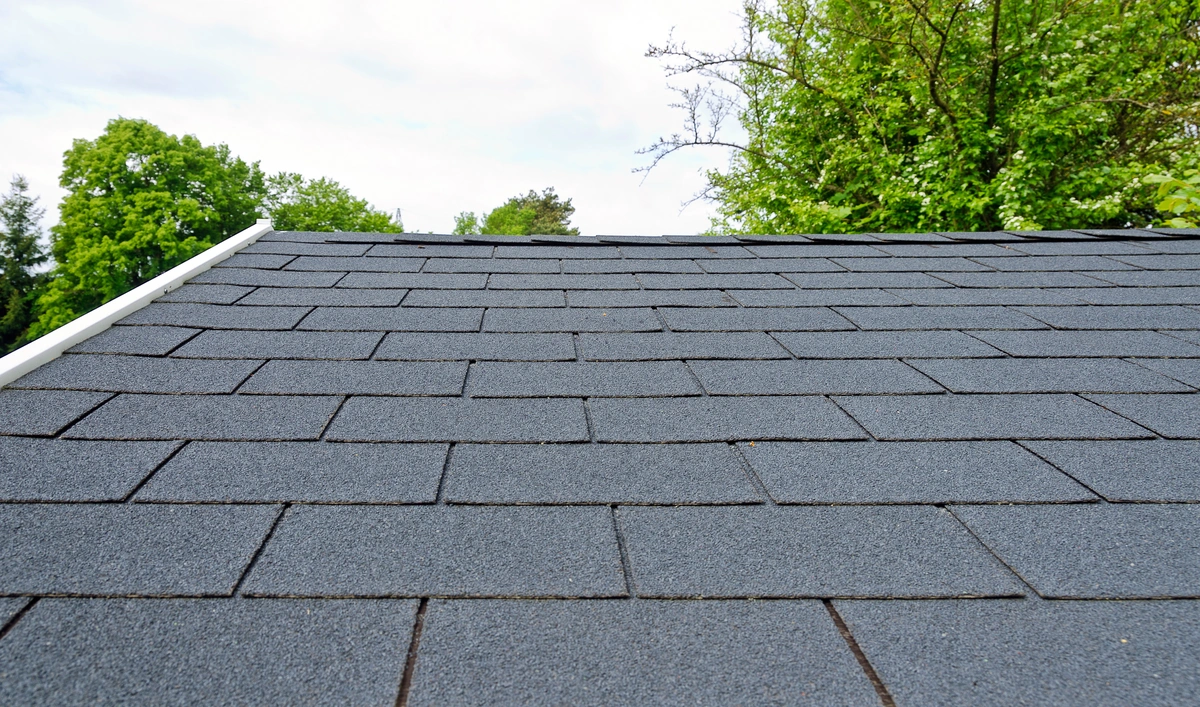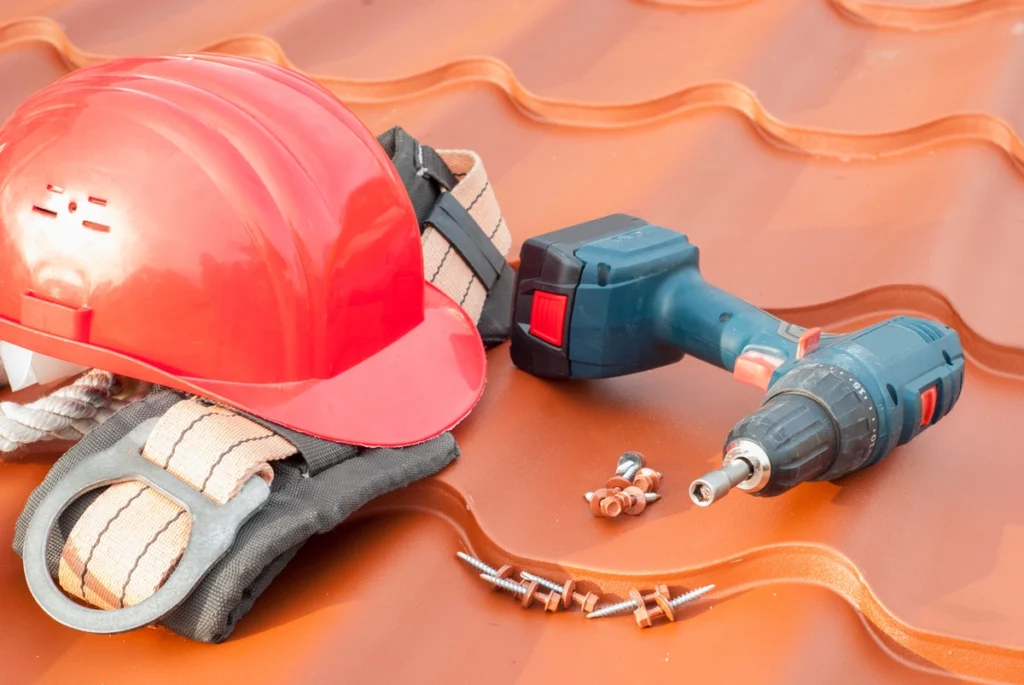
Blog
DIY Roofing: Is It Worth It & What You Need to Know
We live in a unique day and age where you can learn almost anything you want to learn with just a click of a button! These days, more and more homeowners are taking charge of their lives and learning valuable DIY skills that allow them to care for their homes. But what about the roof?
Your roof is a crucial component of your home, providing shelter and protection from the elements. Over time, it may require repairs or even a complete replacement. While hiring a professional roofing contractor is often the safest and most convenient option, some adventurous homeowners may consider tackling roofing projects themselves.
In this guide to DIY roofing, we’ll help you understand:
- The pros and cons of DIY roofing
- The essential tools you’ll need
- The best roofing materials for a DIYer
- When it’s time to call in the pros
Ready to tackle your DIY roof replacement? Keep reading!
✅ Pros of DIY Roofing

When it comes to taking care of your own roof, there are many positive and negative factors to consider. Before you start tearing off shingles, it is important to understand both sides. Here are just a few of the benefits of tackling your old roof by yourself!
1. Cost Savings 💰
One of the most compelling reasons homeowners consider DIY roofing is the potential for cost savings. Roofing projects can be expensive when hiring a professional, as labor costs can significantly increase the overall bill. By taking on the task yourself, you can save a substantial amount of money, especially if you have the necessary skills and equipment.
2. Personal Satisfaction 👍
Completing a roofing project on your own can be incredibly satisfying. It’s an opportunity to learn new skills, challenge yourself, and gain a sense of accomplishment as you transform your home. Plus, you’ll have the pride of saying, “I did that!” every time you look at your roof.
3. Control Over the Project 🏡
When you DIY your roofing project, you have full control over every aspect, from selecting materials to setting the schedule. You won’t have to rely on a contractor’s timeline, which can be especially beneficial if you need to address urgent repairs.
❌ Cons of DIY Roofing
What goes up must come down! Despite the many positives, there are also a few factors that may deter homeowners from putting in a new roof on their own. Here are some downsides to a DIY roofing project.
1. Safety Risks ⚠️
Roofing can be dangerous, especially for those without the proper training and equipment. Falling from a roof can result in severe injuries or even fatalities. While safety precautions can mitigate these risks, they still exist, and homeowners should consider their own safety when deciding to DIY.
2. Lack of Experience 🤷🏽
Professional roofers have years of experience and training, which allows them to diagnose and address issues more efficiently. DIYers may struggle with unfamiliar techniques or encounter unexpected challenges that can lead to mistakes, leaks, or even structural damage.
3. Warranty Concerns 🤔
Many roofing material manufacturers offer warranties, but these warranties may be voided if the installation is not performed by a certified roofing professional. Choosing DIY roofing could mean losing out on the protection of these warranties.
4 Essential Tools for DIY Roofing

Before diving into a roofing project, it’s crucial to have the right tools at your disposal. Here are some of the essential tools you’ll need:
1. Safety Gear
- Safety harness and lanyard: Provides fall protection.
- Hard hat: Protects your head from falling debris.
- Gloves: Prevents cuts and abrasions.
- Safety glasses: Shields your eyes from debris.
2. Roofing Tools
- Roofing hammer or nail gun: For securing shingles and other materials.
- Utility knife: Used for cutting shingles and roofing materials.
- Roofing nails or screws: To attach roofing materials securely.
- Chalk line: Helps maintain straight lines for accurate installation.
- Roofing pry bar: Removes old roofing materials.
- Roofing tar and caulk: For sealing and waterproofing.
3. Measuring and Layout Tools
- Tape measure: Ensures accurate measurements.
- Roofing square: Helps maintain precise angles and cuts.
- Level: Ensures your roof is installed evenly.
4. Ladder
A sturdy ladder that reaches the roof safely is essential for access and working at heights. Make sure it’s in good condition and set up correctly to avoid accidents.
5. Roofing Material
Depending on the type of roofing project, you’ll need the appropriate roofing material, such as asphalt shingles, metal roofing panels, or wooden shakes.
Best Roofing Materials for a DIYer

The choice of roofing material plays a significant role in the success of your DIY roofing project. Here are some materials that are well-suited for homeowners looking to tackle the task themselves:
Asphalt Shingles
Asphalt shingles are the most common roofing material in North America due to their affordability and ease of installation. They come in various styles and colors, making them a versatile choice for DIYers. Asphalt shingles are relatively lightweight, which simplifies handling and installation.
Metal Roofing
Metal roofing is durable, long-lasting, and resistant to extreme weather conditions. While it may require more specialized tools and skills than asphalt shingles, it’s still manageable for experienced DIYers. Metal roofing panels come in various styles, including standing seam and corrugated.
Synthetic Roofing Materials
Some synthetic roofing materials, such as synthetic slate or cedar shakes, mimic the appearance of natural materials but are easier to install and maintain. These can be a good option for homeowners who want the aesthetics of traditional roofing without the added complexity.
Roofing Tiles
Concrete or clay roofing tiles can be a bit more challenging to install due to their weight and fragility, but they can add a beautiful and distinctive look to your home. If you have experience or are willing to learn, this option can create a stunning finish.
When to Call a Professional
While DIY roofing can be a rewarding endeavor, there are instances when it’s best to leave the job to the professionals:
- Complex Roof Designs – If your roof has multiple angles, intricate designs, or unique features, it’s better to hire a professional roofer. These complex structures require specialized knowledge and skills to ensure proper installation and waterproofing.
- Lack of Experience – If you don’t have previous roofing experience or aren’t confident in your skills, it’s safer to hire a professional. Roofing mistakes can be costly to fix and may result in water leaks or structural damage.
- Safety Concerns – If you’re uncomfortable working at heights or don’t have the necessary safety equipment, it’s best to avoid DIY roofing. Falling from a roof can have severe consequences, and safety should always be a top priority.
- Time Constraints – If your roofing project is time-sensitive, such as addressing a leak during a rainy season, professionals can work more quickly and efficiently to prevent further damage.
- Warranty Protection – If your roofing material manufacturer’s warranty is essential to you, hiring a certified roofer is crucial. Improper installation can void these warranties, potentially costing you more in the long run.
Consult With a Roofing Company
DIY roofing can be a cost-effective and rewarding undertaking for homeowners with the necessary skills, tools, and experience. However, it’s essential to weigh the pros and cons carefully and be realistic about your abilities. If you’re unsure or encounter unexpected challenges, don’t hesitate to consult with a professional roofer to ensure the long-term integrity and safety of your roof.
When you want the best team possible, you want the experienced team at Avenue Roofing! From our instant roof quotes to our quality workmanship, we make taking care of your roof as easy as doing it yourself! Contact us today to get started.



